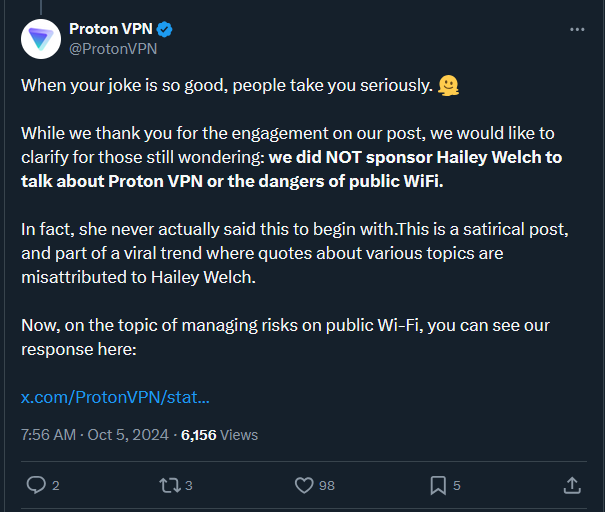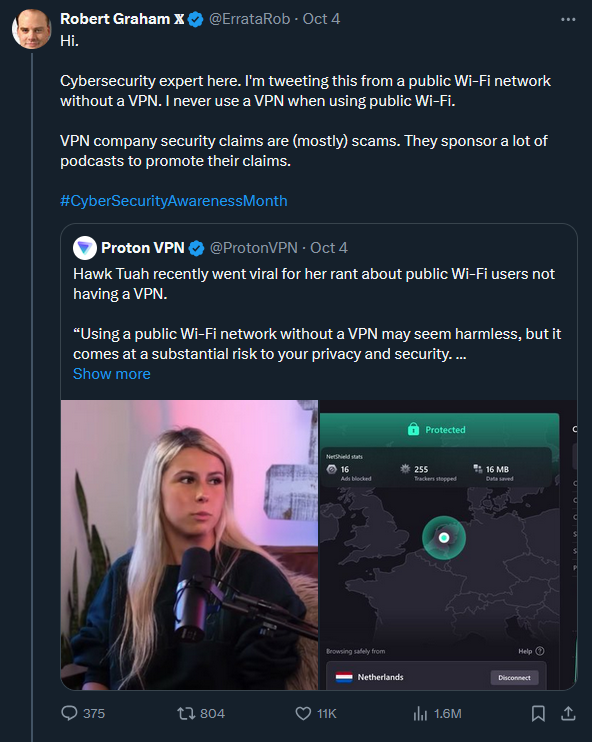this post was submitted on 06 Oct 2024
736 points (90.8% liked)
Technology
76418 readers
2614 users here now
This is a most excellent place for technology news and articles.
Our Rules
- Follow the lemmy.world rules.
- Only tech related news or articles.
- Be excellent to each other!
- Mod approved content bots can post up to 10 articles per day.
- Threads asking for personal tech support may be deleted.
- Politics threads may be removed.
- No memes allowed as posts, OK to post as comments.
- Only approved bots from the list below, this includes using AI responses and summaries. To ask if your bot can be added please contact a mod.
- Check for duplicates before posting, duplicates may be removed
- Accounts 7 days and younger will have their posts automatically removed.
Approved Bots
founded 2 years ago
MODERATORS
you are viewing a single comment's thread
view the rest of the comments
view the rest of the comments


I've never really understood that argument. Most VPN software I've seen forces your DNS through the VPN as well which would bypass a public Wi-Fi's attempt to DNS poison.
I use a VPN anytime I'm not on my home network just because it's a super easy way for me to force my DNS to my own custom DNS with Adblock listing on the machine that's running the VPN endpoint.
It's wireguard, and it connects to a direct IP address. If someone tries to redirect or otherwise man in the middle of the connection wireguard will simply fail to establish a connection. Thanks to the fact that it uses a similar idea to pgp where the client and server already have each other's public keys and there's not really an unencrypted initial handshake even the initial talking has a form of encrypted communication thanks to the key pairings.
So like, my vpn is definitely proving security. Whether or not every random ass VPN you can buy is smart enough to force all DNS over the VPN or anything else I guess I can't say for sure maybe it's not common and that's why but it definitely can be used to help automate some security measures when using a public network